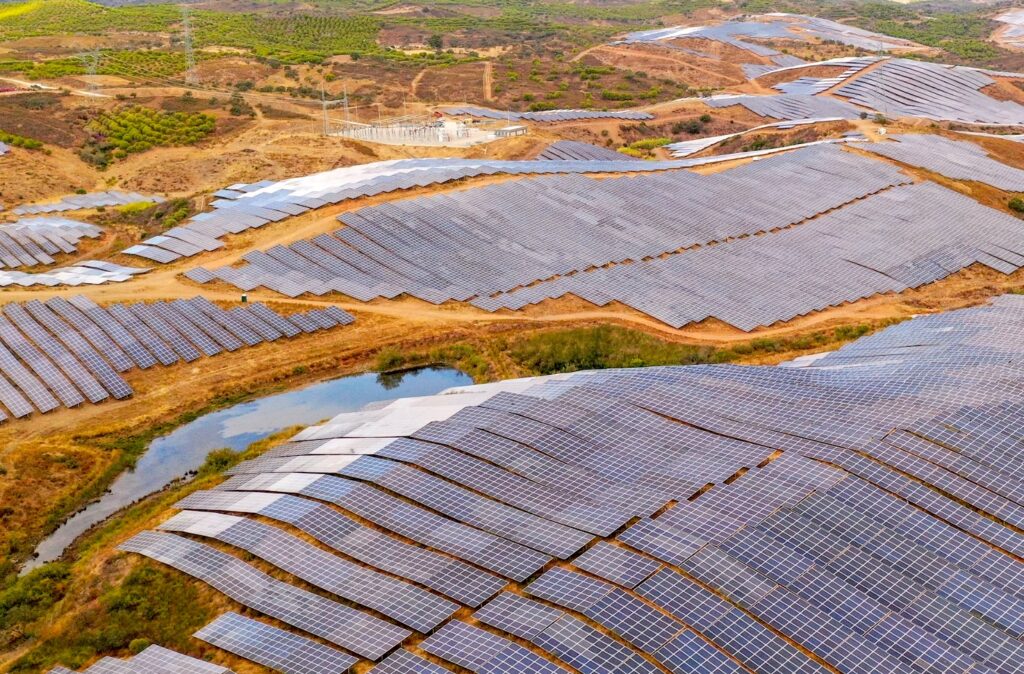Amnesty International Portugal accuses the Government of a lack of transparency and lack of dialogue with the population in promoting photovoltaic power plant projects in the Alentejo and Algarve, in a document that reveals concerns for the local economy.
The investigation by Amnesty International (AI) Portugal “Mega solar power plants: When the “green” transition is not fair” underlines the “dispute among the populations” to the mega projects underway in the south of the country.
According to the organization, civic movements have contested the progress of these projects, even in the courts, for fear of jeopardizing the rights of the populations and the sustainability of the territory, and not only at an economic level.
One of the projects covered in the report is the Fernando Pessoa Photovoltaic Plant, in Santiago do Cacém, promoted by the Spanish electricity company Iberdrola.
“If it goes ahead, it will be the biggest in the country and in Europe. It will occupy more than 1.200 hectares and its construction involves the felling of more than one and a half million trees. It is not just the scale of this mega power plant that is causing social and environmental alarm, but also the choice of land that, in this and other cases, covers areas classified as National Ecological Reserve (REN) and National Agricultural Reserve (RAN)”, he says. AI in the report released today.
According to the document, the criterion for the location of the plants is the proximity to high voltage lines, which can inject the energy produced into the network, neglecting social and environmental impacts.
AI Portugal also questions the 'green light' given by the Portuguese Environment Agency (APA) to the two plants planned for the Alentejo – there is also one projected for the parish of Cercal – since their location seems to coincide with areas considered sensitive by the Ministry of Environment and Climate Action.
“Further south, in the Algarve, another project is in the process of public consultation, which is also creating controversy because of its location. The future Estoi Photovoltaic Power Station will cover the municipalities of Faro, Olhão, São Brás de Alportel and Tavira. According to the civic association Probaal, most of the 156 hectares will be implemented in a National Ecological Reserve”, adds the AI report.
AI Portugal, which heard from local businessmen, producers and farmers, whose land and activities will be neighboring the projected power plants, points out concerns about the impacts on soils and water reserves, noting that the Algarve power plant is designed “for a valley that is an aquifer recharge zone, with a direct impact on streams and water storage in the soil”.
Based on information obtained from local civic movements, AI Portugal also refers to a lack of transparency in the process, due to the difficulty of accessing documents, which, when it happens, is in technical language, which makes it difficult for the population to participate.
There is also criticism of the lack of dissemination of the public consultation processes, which came to the attention of citizens when almost a month had passed for the collection of contributions and without there having been disclosure by the municipalities about the existence of an ongoing process.
Regarding environmental impact assessments, AI Portugal “draws attention to the way in which these instruments are being used and to the potential disrespect for the rights of populations, the environment (as stated in article 66 of the Portuguese Constitution) and the right International".
“AI Portugal recognizes the advantages of solar energy compared to energy obtained from fossil fuels, but calls for plans for the country to be able to involve the entire population, in an inclusive and transparent way. AI believes that respect for human rights and climate justice are only possible if the solutions are capable of maintaining the focus on sustainability and the horizon on the planet that we want to leave to future generations”, concludes the document.


















Comments